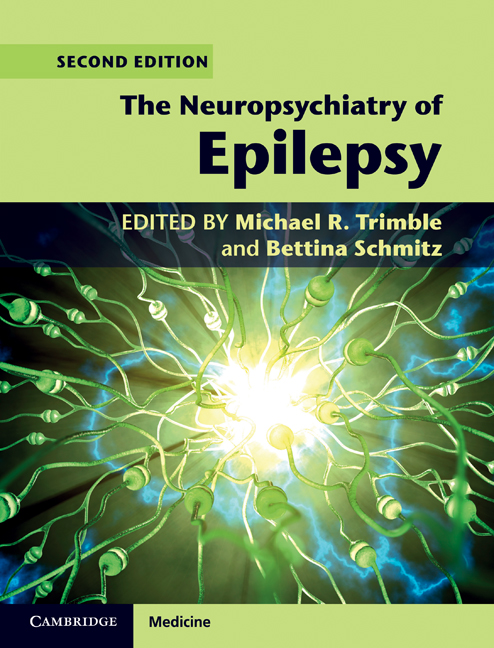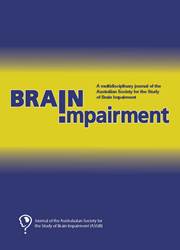The Neuropsychology of Mental Illness
It is widely accepted that most psychiatric disorders are associated with cognitive impairment and that neuropsychological approaches can help unravel the mechanisms underlying brain function and help us develop a better understanding of these disorders. In this book, a panel of the world's leading experts describe the development of neuropsychological approaches to the investigation, description, measurement and management of a wide range of mental illnesses. Part One explains the rationale for examining neuropsychological processes within clinical disorders, leading into Part Two summarizing and critiquing the methodological approaches to study. Part Three covers each of the major psychiatric disorders and provides a summary of the neuropsychological findings for each condition. The final section brings together the perspectives of neuroscientists, psychiatrists and philosophers. Essential reading for all those studying the healthy as well as the disordered brain, The Neuropsychology of Mental Illness will appeal to specialists from the fields of mental health, psychology, clinical neuroscience and philosophy.
- The first book to describe neuropsychological approaches to all psychiatric disorders
- With contributions from the world's leading opinion leaders in the field
- Explores the interface of neuropsychology with other neurobiological as well as philosophical approaches
Reviews & endorsements
"One of many advantages of a neuropsychological evaluation is the ability to differentiate cognitive problems due to neurological versus psychological factors. In order do so, neuropsychologists need to be aware of the potential cognitive deficits that accompany various psychological disorders. This book is intended to provide just such a review of the literature."
--Doody's Review Service
Product details
November 2009Hardback
9780521862899
464 pages
252 × 196 × 25 mm
1.16kg
25 b/w illus. 11 colour illus. 8 tables
Available
Table of Contents
- Dedication
- Foreword
- Preface
- List of contributors
- Part I. Neuropsychological Processes:
- 1. Developmental neuropsychology: normative trajectories and risk for psychiatric illness
- 2. Processes and mechanisms in neuropsychiatry: sensory-perceptual
- 3. Processes and mechanisms in neuropsychiatry: motor-executive processes
- 4. The neurobiology of the emotion response: perception, experience, and regulation
- 5. Frontal asymmetry in emotion, personality and psychopathology: methodological issues in electrocortical and hemodynamic neuroimaging
- 6. Approaches to understanding language dysfunction in neuropsychiatric disorders: insights from the study of schizophrenia
- 7. Associative memory
- 8. The neural basis of attention
- 9. The role of executive functions in psychiatric disorders
- 10. Decision-making
- 11. The neuropsychology of social cognition: implications for psychiatric disorders
- Part II. The Importance of Methods:
- 12. Psychiatric diagnoses: purposes, limitations and an alternative approach
- 13. Neuropsychological methods in mental disorders research: illustrations from methamphetamine dependence
- 14. The study of emotion and the interaction between emotion and cognition: methodological perspectives
- 15. Neurophysiology: using neurophysiological techniques to study auditory hallucinations in schizophrenia
- 16. Neuroimaging
- 17. Psychopharmacological modeling of psychiatric illness
- 18. Cognitive phenomics
- Part III. The Neuropsychology of Psychiatric Disorders:
- 19. Neuropsychology of ADHD and other disorders of childhood
- 20. A multidimensional neurobehavioral model of personality disorders
- 21. Neuropsychology in eating disorders
- 22. Neurobiological and neuropsychological pathways into substance use and addictive behaviour
- 23. Neuropsychology of obsessive-compulsive disorder
- 24. Neuropsychological investigation in mood disorders
- 25. Manic distractibility and processing efficiency in bipolar disorder
- 26. Schizophrenia
- Part IV. Integration and Synthesis: Are Mental Illnesses Disorders of Consciousness? A Trialogue between Neuroscientific, Philosophical, and Psychiatric Perspectives:
- 27. Mental illness and the consciousness thesis
- 28. A nonreductive physicalist account of affective consciousness
- 29. Consciousness of oneself and others in relation to mental disorders
- 30. Trialogue: commentaries on 'are mental illnesses disorders of consciousness?' Comments on Panksepp and on Vogeley and Newen
- Affective consciousness and the psychiatric comfort zones of experienced life
- The definition and the constitution of mental disorders and the role of neural dysfunctions
- Response to commentaries
- Understanding affects: toward a neurobiology of primary process mentalities
- Replies to comments by Jaak Panksepp and by G. Lynn Stephens and George Graham.








